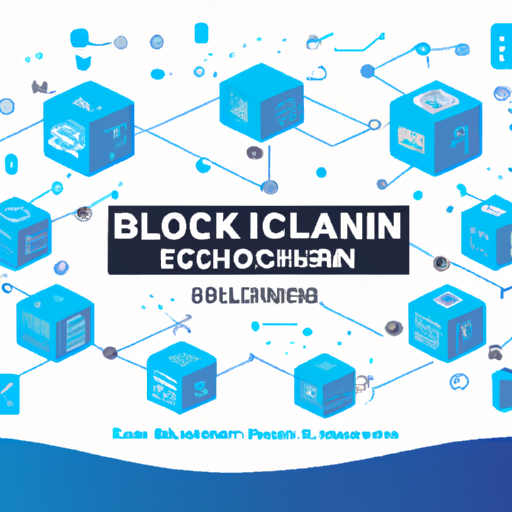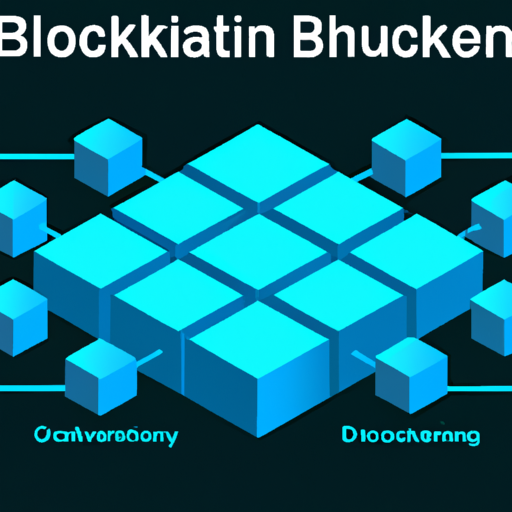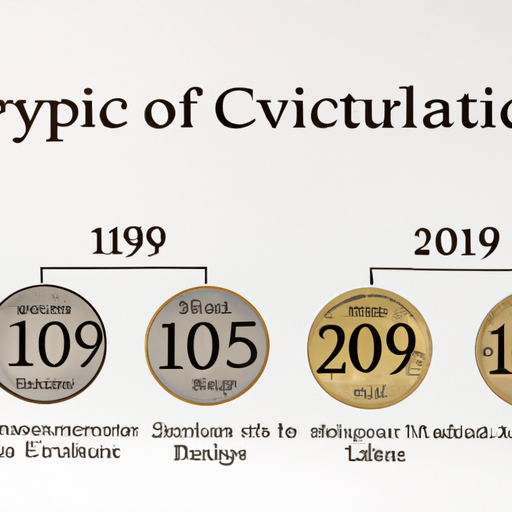-
Table of Contents
“Unlock the Power of Blockchain: Transforming Industries with Secure, Transparent Solutions.”
Introduction
Blockchain technology has revolutionized the way businesses operate in various industries. It has enabled organizations to securely store and transfer data, create immutable records, and facilitate secure transactions. Blockchain applications have been used in a variety of industries, including finance, supply chain management, healthcare, and more. By leveraging the power of distributed ledger technology, businesses can increase transparency, reduce costs, and improve efficiency. Blockchain applications can also help to reduce fraud and increase security. In this article, we will explore the various ways in which blockchain technology is being used in different industries.
Exploring the Potential of Blockchain in the Financial Services Industry
The financial services industry is undergoing a major transformation due to the emergence of blockchain technology. Blockchain is a distributed ledger technology that enables secure, transparent, and immutable transactions. It has the potential to revolutionize the way financial services are conducted, from payments and settlements to asset management and trading.
Blockchain technology offers a number of advantages over traditional financial services. It is secure, as it uses cryptography to protect data and transactions. It is also transparent, as all transactions are recorded on a public ledger. This makes it difficult for fraudsters to manipulate the system. Additionally, blockchain is immutable, meaning that once a transaction is recorded, it cannot be changed or reversed.
Blockchain technology can also reduce costs and increase efficiency in the financial services industry. By eliminating the need for intermediaries, such as banks and brokers, blockchain can reduce transaction costs and speed up the settlement process. Additionally, blockchain can reduce the risk of fraud and errors, as all transactions are recorded on a public ledger.
Finally, blockchain technology can enable new business models and services. For example, it can enable the development of smart contracts, which are self-executing contracts that are stored on the blockchain. Smart contracts can be used to automate processes such as payments and settlements, reducing the need for manual intervention.
In conclusion, blockchain technology has the potential to revolutionize the financial services industry. It offers a number of advantages, including increased security, transparency, and immutability. Additionally, it can reduce costs and increase efficiency. Finally, it can enable new business models and services. As such, it is clear that blockchain technology has the potential to revolutionize the financial services industry.
How Blockchain is Revolutionizing Supply Chain Management
Blockchain technology is revolutionizing the way supply chain management is conducted. By providing a secure, immutable, and transparent ledger, blockchain technology is enabling businesses to track and trace goods and services from the point of origin to the point of delivery.
The traditional supply chain management system is often plagued by inefficiencies, such as long delays, high costs, and lack of visibility. Blockchain technology is helping to address these issues by providing a secure, distributed ledger that can be used to track and trace goods and services. This ledger is immutable, meaning that it cannot be altered or tampered with, and it is transparent, meaning that all parties involved in the supply chain can view the data.
Blockchain technology is also helping to reduce costs associated with supply chain management. By providing a secure and transparent ledger, businesses can reduce the need for manual processes and paperwork, which can be costly and time-consuming. Additionally, blockchain technology can help to reduce fraud and counterfeiting, as all transactions are recorded on the ledger and can be easily verified.
Finally, blockchain technology is helping to improve the efficiency of supply chain management. By providing a secure and transparent ledger, businesses can quickly and easily track and trace goods and services, reducing delays and improving customer satisfaction. Additionally, blockchain technology can help to reduce the risk of data breaches, as all data is stored securely on the ledger.
In conclusion, blockchain technology is revolutionizing the way supply chain management is conducted. By providing a secure, immutable, and transparent ledger, blockchain technology is enabling businesses to track and trace goods and services from the point of origin to the point of delivery. Additionally, blockchain technology is helping to reduce costs, improve efficiency, and reduce the risk of data breaches. As the technology continues to evolve, it is likely that blockchain technology will continue to revolutionize the way supply chain management is conducted.
The Benefits of Blockchain for Healthcare Data Security
The healthcare industry is increasingly turning to blockchain technology to secure and protect sensitive patient data. Blockchain is a distributed ledger technology that provides a secure, immutable, and transparent way to store and share data. It is a decentralized system that is not controlled by any single entity, making it virtually impossible to hack or manipulate.
The healthcare industry is particularly vulnerable to data breaches due to the large amount of sensitive patient information it holds. By using blockchain technology, healthcare organizations can ensure that patient data is secure and protected from unauthorized access.
Blockchain technology offers several benefits for healthcare data security. First, it provides a secure and immutable way to store and share data. All data stored on the blockchain is encrypted and can only be accessed by authorized users. This ensures that only authorized personnel can access sensitive patient information.
Second, blockchain technology provides a transparent way to track and audit data. All changes to the data are recorded on the blockchain, allowing healthcare organizations to easily track and audit data. This helps to ensure that patient data is not being manipulated or misused.
Third, blockchain technology can help to reduce costs associated with data security. By using blockchain technology, healthcare organizations can reduce the costs associated with data storage and security. This can help to reduce the overall cost of healthcare services.
Finally, blockchain technology can help to improve patient privacy. By using blockchain technology, healthcare organizations can ensure that patient data is only accessed by authorized personnel. This helps to ensure that patient data is not being misused or shared without the patient’s consent.
In conclusion, blockchain technology offers several benefits for healthcare data security. It provides a secure, immutable, and transparent way to store and share data. It also helps to reduce costs associated with data security and improve patient privacy. As the healthcare industry continues to embrace blockchain technology, it is likely that these benefits will become even more pronounced.
Leveraging Blockchain for Improved Transparency in Government
The use of blockchain technology has the potential to revolutionize the way governments operate, providing increased transparency and accountability. Blockchain is a distributed ledger technology that allows for secure, immutable, and transparent record-keeping. It is a decentralized system that is not controlled by any single entity, making it difficult to manipulate or tamper with data.
Blockchain technology can be used to improve transparency in government by providing a secure and immutable record of all transactions. This could be used to track the flow of funds, ensuring that public funds are being used appropriately and that all transactions are properly documented. It could also be used to track the progress of government projects, providing citizens with a clear view of how their tax dollars are being spent.
In addition, blockchain technology could be used to improve the security of government data. By using a distributed ledger, data can be stored securely and encrypted, making it difficult for hackers to access or manipulate. This could help protect sensitive information, such as voter records, from malicious actors.
Finally, blockchain technology could be used to improve the efficiency of government processes. By automating certain tasks, such as contract management and document verification, governments could reduce the amount of time and money spent on administrative tasks. This could free up resources to be used for more important initiatives, such as improving public services.
Overall, blockchain technology has the potential to revolutionize the way governments operate, providing increased transparency and accountability. By leveraging this technology, governments can ensure that public funds are being used appropriately, that data is secure, and that processes are efficient. In doing so, governments can create a more transparent and accountable system that benefits citizens.
Conclusion
In conclusion, blockchain technology has the potential to revolutionize many industries, from finance to healthcare. By providing a secure, transparent, and immutable platform for data storage and transactions, blockchain can help to reduce costs, increase efficiency, and improve security. As the technology continues to evolve, more and more industries are likely to adopt blockchain applications to improve their operations.




